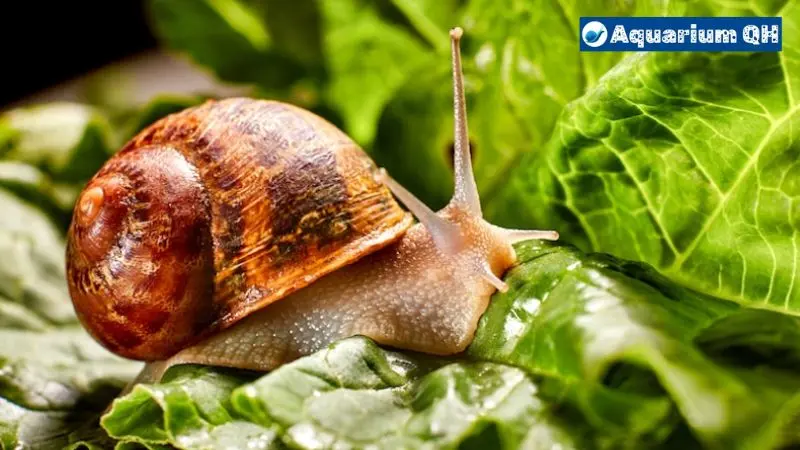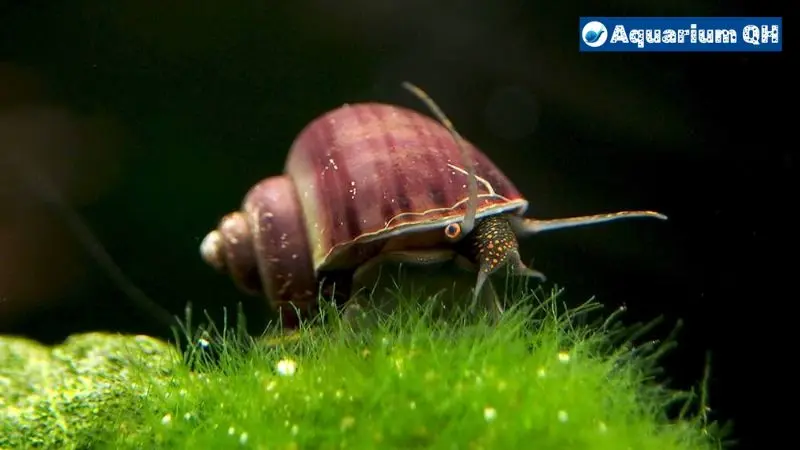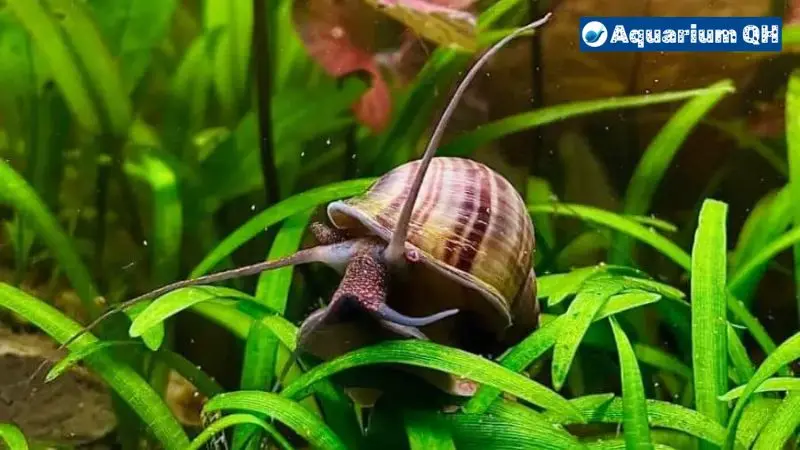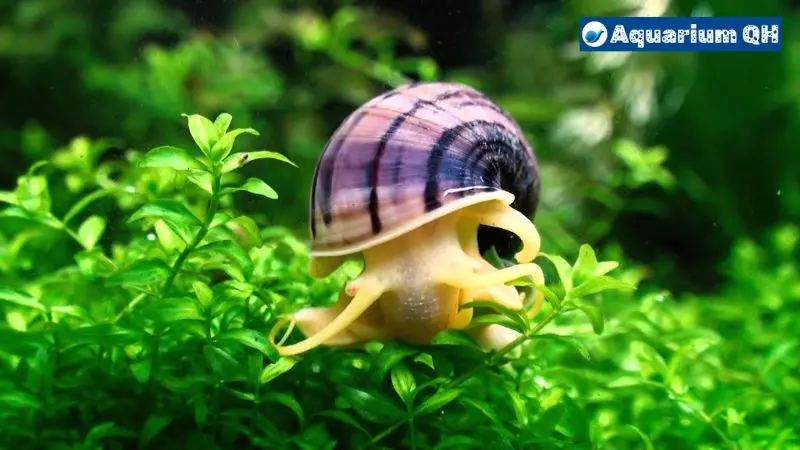Are you a snail owner wondering if your slimy friend can enjoy some celery as part of their diet? The answer is yes, snails can eat celery! In fact, celery is a great source of nutrients for snails and can contribute to their overall health.
However, like with any food, moderation is key. In this article, we will explore the benefits of feeding celery to snails, how often they should eat it, and other vegetables and fruits that are safe for them to consume. Let’s explore with Aquarium QH.
Can Snails Eat Celery?
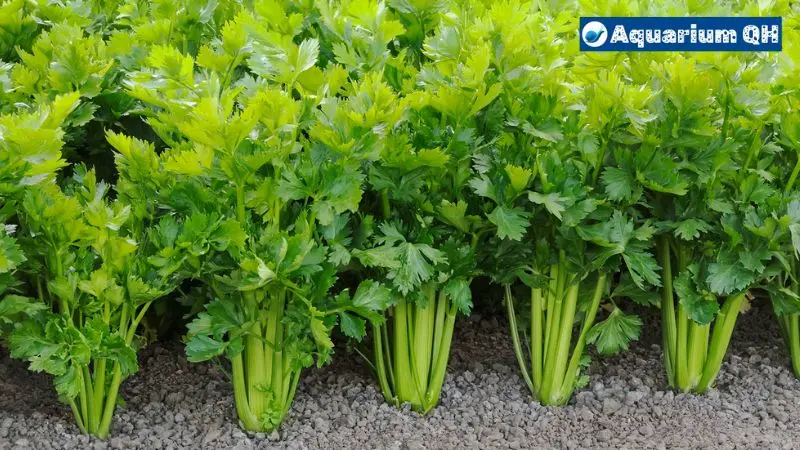
Celery is a popular vegetable known for its crunchy texture and refreshing taste. But can snails enjoy this green treat as well? The answer is a resounding yes! Celery is a good source of water, calcium, phosphorus, and magnesium, as well as fiber. All of these nutrients are important for snail health and can contribute to their growth and development.
Snails have a slow metabolism and require a balanced diet to thrive. Celery provides a good balance of essential nutrients that can benefit their overall health. However, it is important to note that snails should only eat celery in moderation. Too much celery can cause digestive problems for snails, so it is best to feed them celery about once a week.
How to Feed Celery to Snails
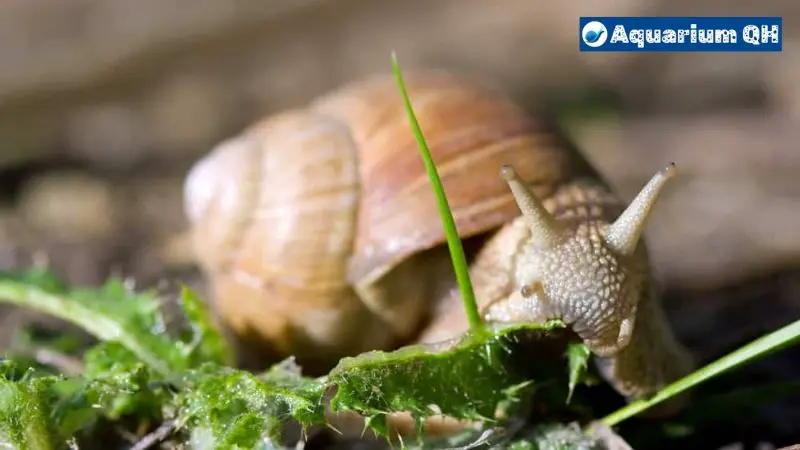
Feeding celery to snails is a simple process. Here’s a step-by-step guide on how to do it:
- Wash the celery thoroughly to remove any dirt or pesticides.
- Cut the celery into thin slices to make it easier for the snails to eat.
- Place the slices of celery in a shallow dish.
- Add some water to the dish to keep the celery moist.
- Place the dish in the snail’s enclosure and let them enjoy the celery at their leisure.
It is important to remove any uneaten celery after 24 hours to prevent it from spoiling and attracting pests. Snails are nocturnal creatures, so it is best to feed them in the evening when they are most active.
Other Vegetables That Snails Can Eat
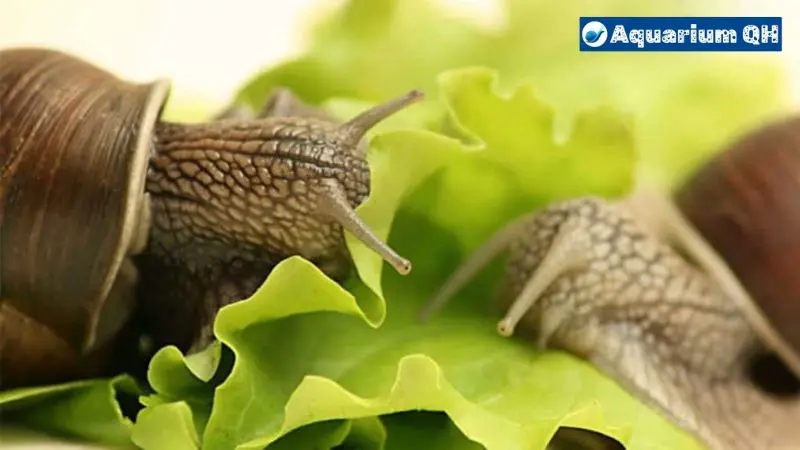
In addition to celery, snails can also enjoy a variety of other vegetables as part of their diet. Here are some safe options for your slimy friends:
Carrots
Carrots are a great source of beta-carotene, which is essential for snail health. They also contain vitamins A, C, and K, as well as potassium and fiber. Just like with celery, carrots should be fed to snails in moderation to avoid digestive issues.
Zucchini
Zucchini is another vegetable that snails can enjoy. It is rich in water, making it a hydrating snack for snails. Zucchini also contains vitamins A and C, as well as magnesium and potassium. Cut the zucchini into small pieces before feeding it to your snails.
Squash
Squash is a nutritious vegetable that snails can eat. It is a good source of vitamins A and C, as well as potassium and fiber. You can feed your snails both raw and cooked squash, but make sure to remove any seeds or skin before giving it to them.
Lettuce
Lettuce is a popular leafy green that is safe for snails to consume. It is high in water content and contains vitamins A, C, and K, as well as calcium and iron. However, not all types of lettuce are suitable for snails. Avoid feeding them iceberg lettuce, as it has low nutritional value and can cause digestive problems.
Spinach
Spinach is a nutrient-dense vegetable that snails can enjoy. It is rich in vitamins A, C, and K, as well as iron and calcium. However, like with lettuce, it is important to feed snails spinach in moderation as too much can cause digestive issues.
Kale
Kale is a superfood for both humans and snails. It is packed with vitamins A, C, and K, as well as calcium and iron. However, just like with other vegetables, kale should be fed to snails in moderation to avoid any health problems.
Fruits That Snails Can Eat
Apart from vegetables, snails can also enjoy some fruits as part of their diet. Here are some safe options for your slimy friends:
Grapes
Grapes are a delicious and nutritious treat for snails. They are high in water content and contain vitamins A, C, and K, as well as potassium and fiber. Make sure to cut the grapes into small pieces before feeding them to your snails.
Bananas
Bananas are another fruit that snails can eat. They are rich in vitamins B6 and C, as well as potassium and fiber. You can feed your snails both ripe and unripe bananas, but make sure to remove any peels before giving it to them.
Strawberries
Strawberries are a sweet and juicy fruit that snails can enjoy. They are high in water content and contain vitamins C and K, as well as potassium and fiber. Cut the strawberries into small pieces before feeding them to your snails.
Blueberries
Blueberries are a great source of antioxidants and nutrients for snails. They contain vitamins C and K, as well as manganese and fiber. Just like with other fruits, make sure to cut the blueberries into small pieces before feeding them to your snails.
Raspberries
Raspberries are another safe fruit for snails to consume. They are high in water content and contain vitamins C and K, as well as manganese and fiber. Cut the raspberries into small pieces before feeding them to your snails.
Protein Sources for Snails
Apart from vegetables and fruits, snails also need to eat protein as part of their diet. Here are some safe options for protein sources for snails:
Fish Food
Fish food is a convenient and readily available source of protein for snails. It contains essential nutrients such as vitamins and minerals that can benefit snail health. However, make sure to choose fish food that is specifically formulated for snails and does not contain any harmful additives.
Freeze-Dried Bloodworms
Freeze-dried bloodworms are another popular protein source for snails. They are rich in protein and contain essential amino acids that are important for snail growth and development. However, like with fish food, make sure to choose freeze-dried bloodworms that are specifically made for snails.
Live Insects
Snails are natural scavengers and will enjoy eating live insects. You can feed them small insects such as crickets, mealworms, and earthworms. These insects are a great source of protein and can provide enrichment for snails by allowing them to exhibit their natural behavior.
How Often Do Snails Eat?
Snails eat every day, but they do not consume large amounts of food at one time. On average, snails eat about 1% of their body weight per day. For example, if your snail weighs 10 grams, they will eat about 0.1 grams of food per day.
However, several factors can affect how often snails eat. Let’s take a look at them:
Temperature
Temperature plays a crucial role in snail metabolism. Snails eat more frequently in warm weather than in cold weather. This is because warmer temperatures increase their metabolism, causing them to require more food to sustain themselves.
Humidity
Humidity is another factor that can affect how often snails eat. Snails thrive in humid environments and require moisture to stay hydrated. In dry environments, snails may not eat as frequently as they would in a more humid setting.
Food Availability
Snails are opportunistic feeders and will eat whenever food is readily available. If you provide your snails with a constant supply of food, they may eat more frequently than if you only offer them food once a day.
Conclusion
In conclusion, snails can safely eat celery as part of their diet. Celery is a good source of water, calcium, phosphorus, and magnesium, as well as fiber, which are all essential for snail health. However, it is important to feed celery to snails in moderation to avoid any digestive problems.
Apart from celery, snails can also enjoy other vegetables and fruits such as carrots, zucchini, squash, lettuce, spinach, kale, grapes, bananas, strawberries, blueberries, and raspberries. They also need protein in their diet, which can be provided through fish food, freeze-dried bloodworms, and live insects.
Remember, snails have a slow metabolism and do not require large amounts of food. Factors such as temperature, humidity, and food availability can affect how often they eat. By providing your snails with a balanced and varied diet, you can ensure that they stay healthy and happy.

